US President Donald Trump's imposition of 25% tariffs on imported steel and aluminum "without any exceptions or exemptions" puts the world on the brink of a full-blown trade war.
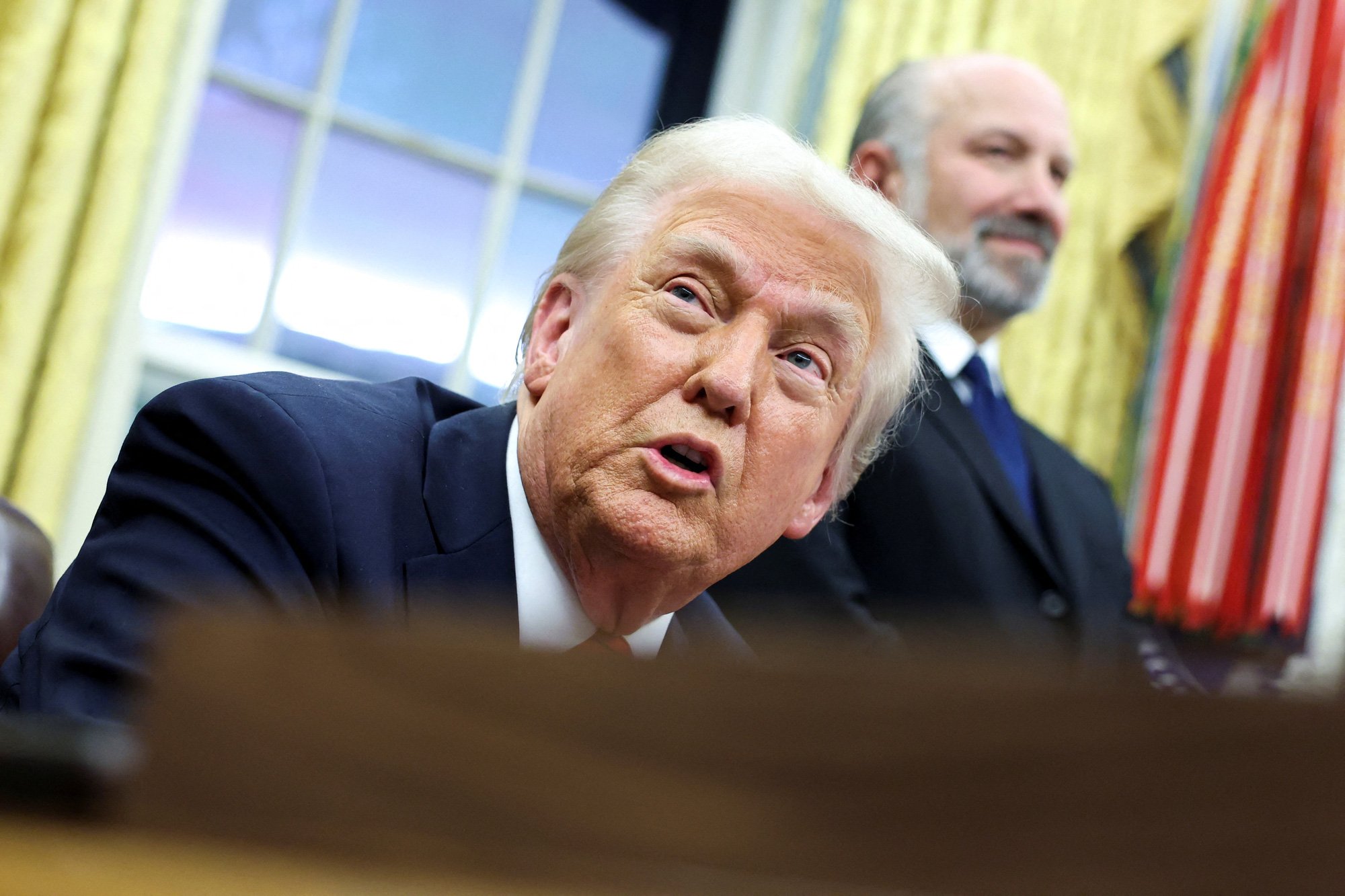
US President Donald Trump in the Oval Office at the White House when signing executive orders on February 10 - Photo: REUTERS
"This is an unmistakable escalation of the trade conflict, but whether it develops into a full-blown trade war depends on the reactions of the affected countries," Professor Julien Chaisse (Hong Kong University, China) told Tuoi Tre .
Worldwide influence
In trade law, a “trade war” typically refers to a series of escalating tariffs and countermeasures. “With the European Union, Canada, and Mexico all announcing potential responses, we are seeing early signs of such an escalation,” Chaisse continued.
When signing the decree imposing a 25% tax at the White House on the evening of February 10, President Trump announced that he would take "reciprocal" measures against all countries imposing tariffs on US goods in the next two days.
This can be seen as a warning, and at the same time a move to "push the ball to another court" when implying that how countries react will decide whether the world enters a full-blown trade war or not.
While international media has focused much of its attention on the largest steel suppliers to the US, such as Canada, Brazil, Mexico and South Korea, the new US tariff measures have a much larger scope of impact.
During his first term, in 2018, through tariffs, the Trump administration reached agreements on quotas with a number of aluminum and steel producing countries and exempted several countries from the 10% tariff.
However, in a newly signed decree posted by the White House, all quota agreements and hundreds of tariffs related to aluminum and steel products will be abolished.
Also under this decree, imported steel and aluminum must be "melted and shaped" in the US - a requirement that is said to limit products originating from China and Russia from entering the US through third countries.
The tariffs will also extend to downstream products using foreign-made steel and aluminum, including fabricated structural steel and aluminum extrusions.
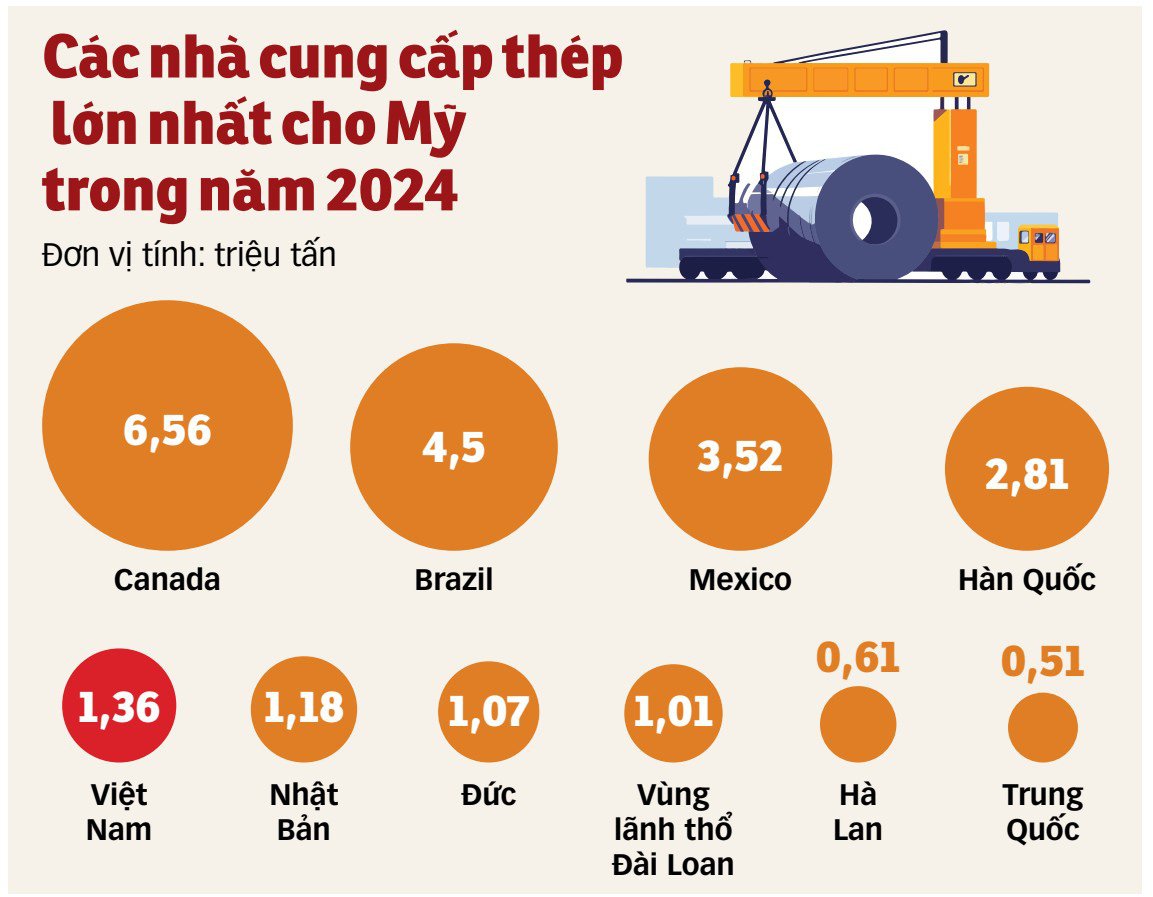
Source: American Iron and Steel Institute - Data: DUY LINH - Graphics: T.DAT
Target is China?
Trump supporters believe that the new tariffs will help bring factories and jobs back to the United States, a view that is partly justified given the record of his first term.
According to statistics from the American Iron and Steel Institute, steel imports fell by 10.2 million tons between 2017 - before the 10% tariff was imposed - and 2019. During the same period, US domestic steel production increased by 6.8 million tons, equivalent to 7.5%.
However, according to observers, Mr. Trump's target this time is not Canada, Mexico, or South Korea - countries that the US can easily "subdue" - but China.
Although China is only the 10th largest steel supplier to the US, these tariffs act as an indirect restriction on the country, hitting loopholes in shipping and proving origin.
According to Reuters, a US official also implicitly admitted that the ultimate target is China.
"Chinese steel is exported to third countries, processed or rebranded, and then exported to the US under a different country of origin label. The new US move is designed to close this backdoor," said Professor Chaisse.
This would result in countries like China, which import semi-finished steel and aluminum, facing closer scrutiny from the US.
“If these countries’ exports to the US remain high, they could become targets of new trade investigations. China could divert more steel to Southeast Asia, Africa and Europe, leading to oversupply and falling prices in those markets,” Chaisse predicted.
Reaction of countries
China has yet to comment — something many believe will not happen, as that would be tantamount to confirming that it has been evading US tariffs by shipping semi-finished steel and aluminum to other countries. The focus is now on countries like Canada, South Korea and Mexico.
Acting South Korean President Choi Sang Mok said his government will seek to negotiate with the US administration on new tariffs to protect the interests of companies.
According to Mr. Choi, leaders of about 20 major corporations in the country have planned to visit the US in the near future, while the government will discuss countermeasures with Japan and the European Union.
Meanwhile, Canada's Industry Minister described the new US tariffs as "completely unwarranted", emphasizing that Canadian steel and aluminum support key US industries from defense, shipbuilding, energy to auto manufacturing.
Source: https://tuoitre.vn/nguy-co-chien-tranh-thuong-mai-toan-dien-20250212065530108.htm






























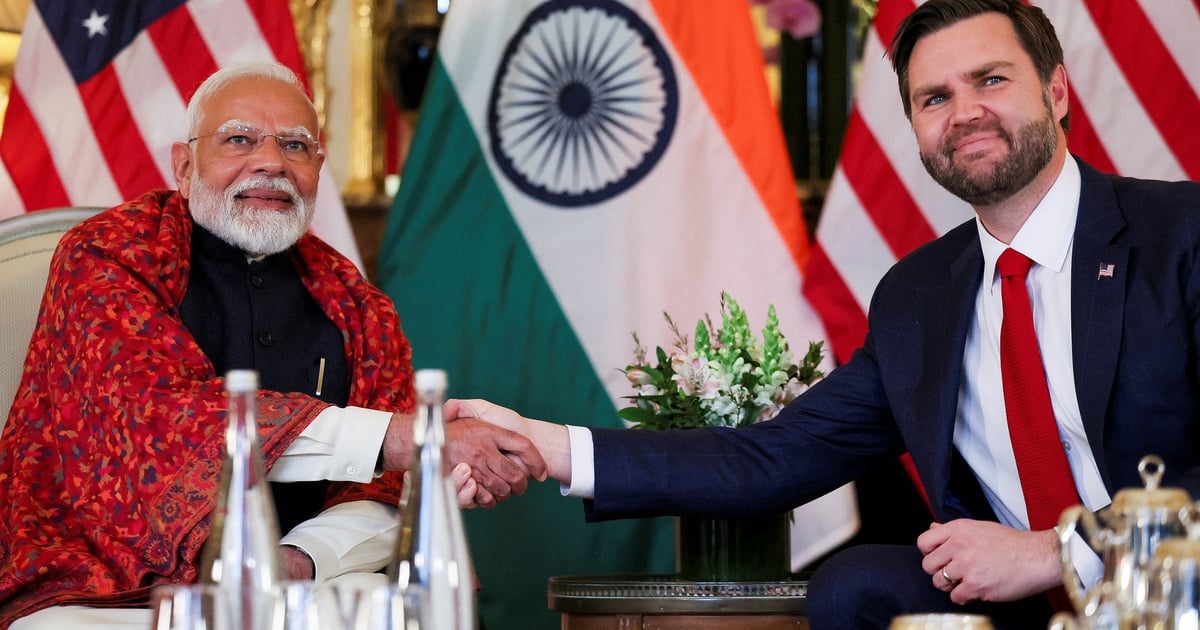





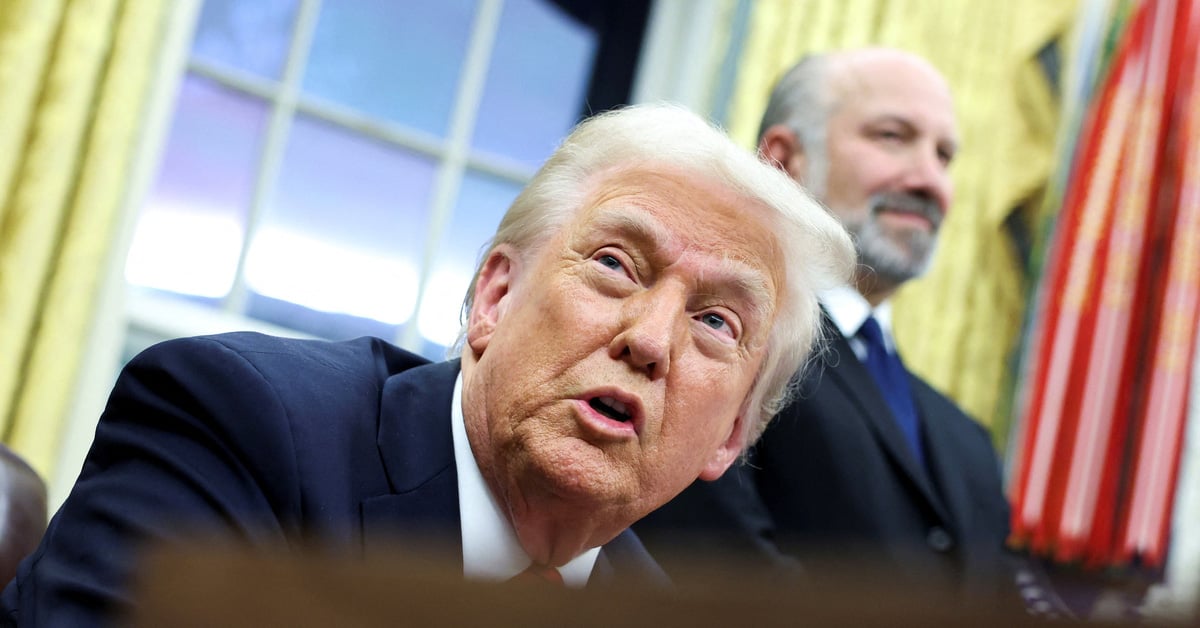
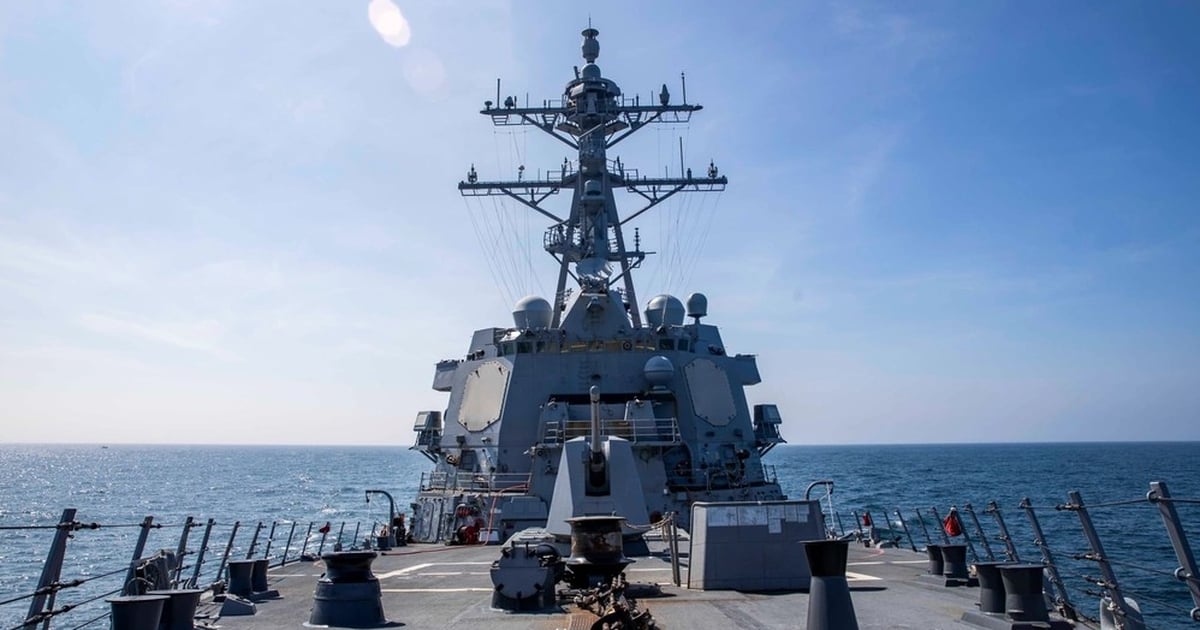
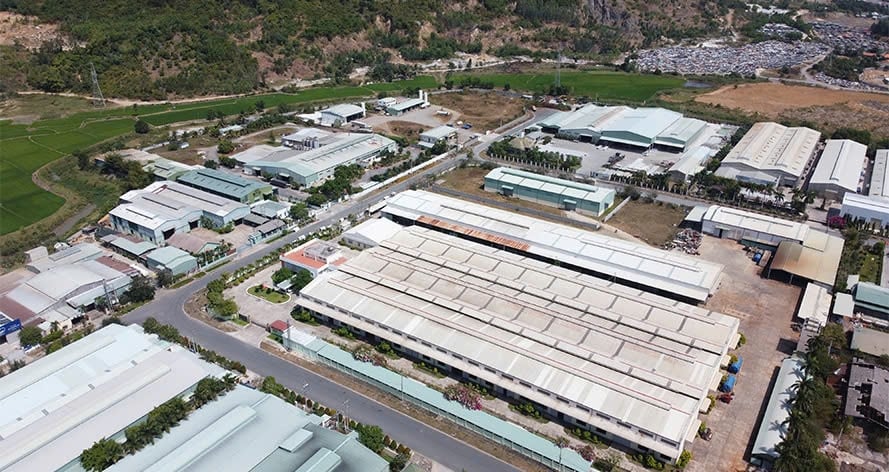



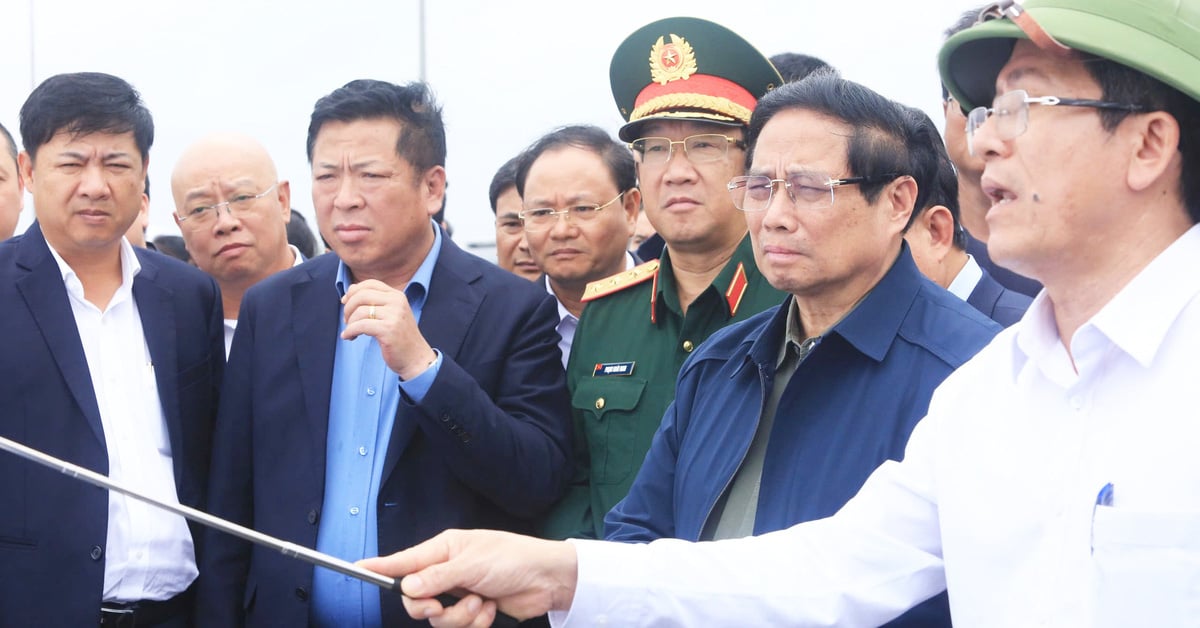
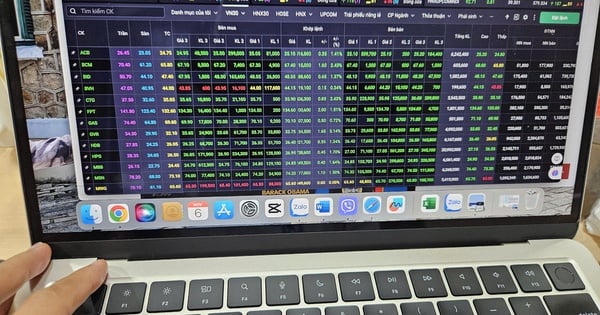


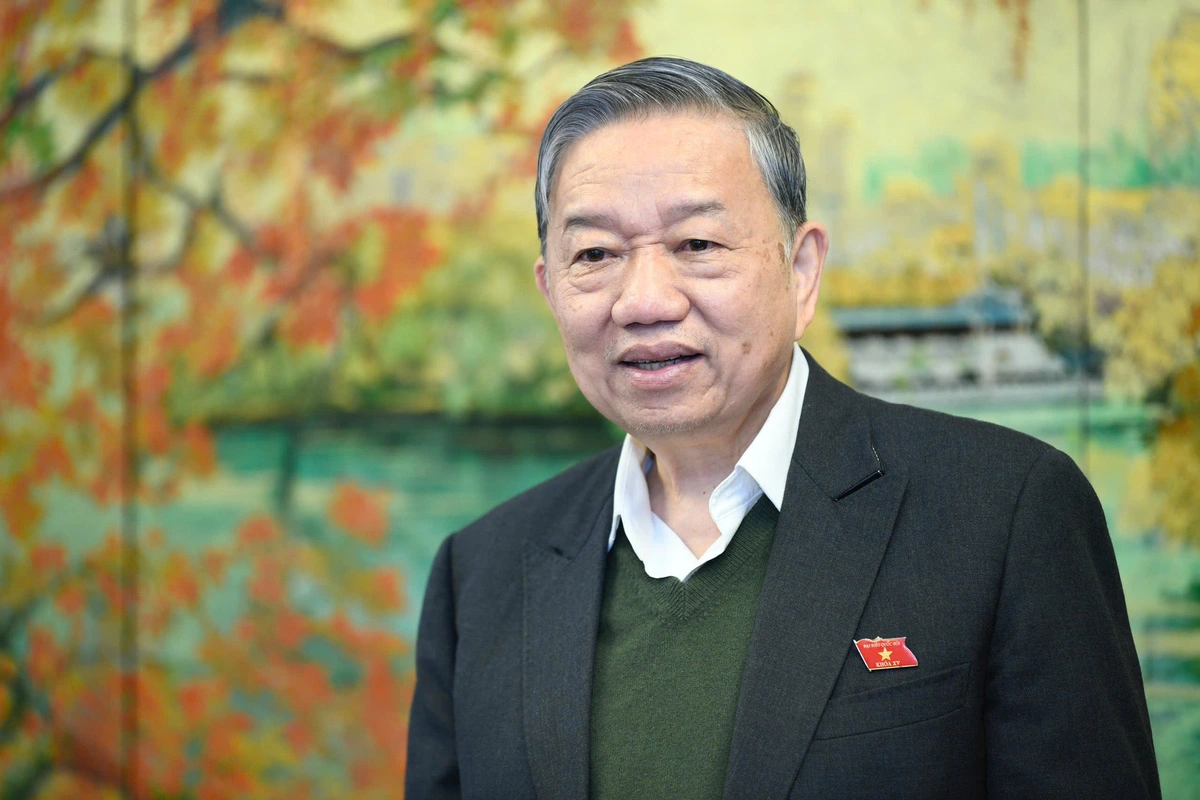

















Comment (0)